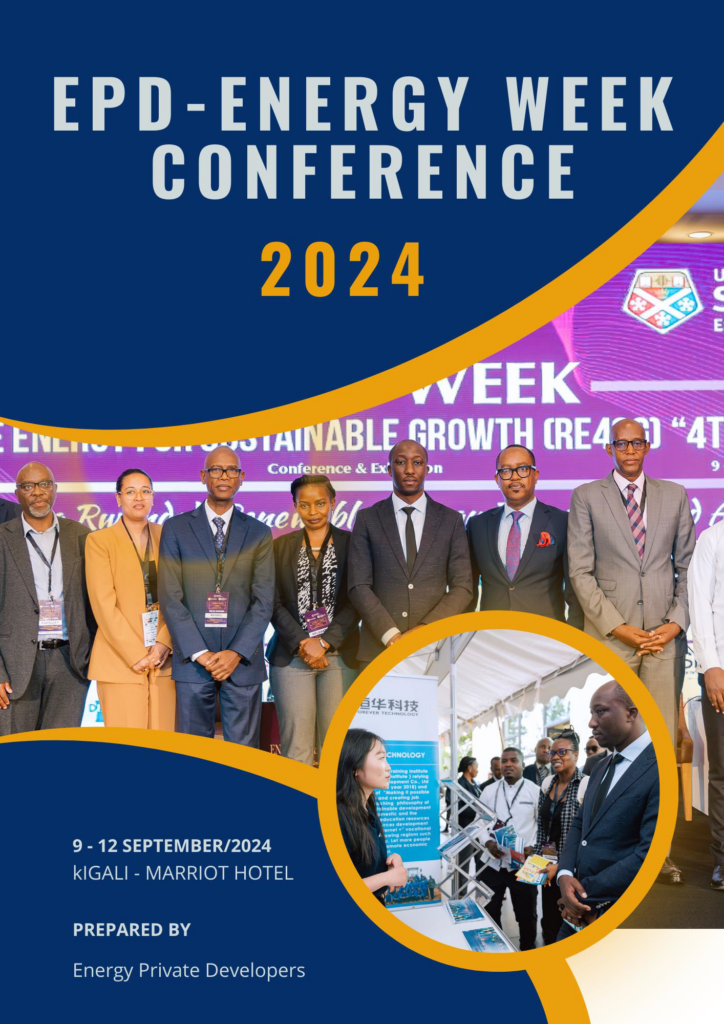
The 4th Edition of Renewable Energy for Sustainable Growth (RE4SG) took place from the 9th – 12th September 2024 under the theme “Accelerating Rwanda’s Renewable Energy Transition and Adoption”. Organized by Energy Private Developers (EPD) in partnership with The University of Strathclyde and its Global Renewables Centre (GRC), the conference and exhibition reached out to the Rwandan Renewable Energy sector, providing a platform for multi-stakeholder dialogue, international business and partnership development. In total 285 delegates attended, 34 of whom were international.
Revitalising the RE4SG conference after a gap of several years was an opportunity for the new Global Renewables Centre partnership to build on the initial engagement and knowledge exchange workshops of early 2024. As the first high-level GRC collaborative event, the aim was to mobilise contributions from Scotland, Zambia and Malawi, demonstrating the potential of the GRC to facilitate international knowledge exchange.
Key contributions were made to panel sessions on:
- Empowering Women for an Inclusive Energy Transition panel session (Zambia perspective)
- Current Initiatives for Enhancing Productive Use of Renewable Energy (Malawi perspective
- Innovative Renewable Energy Solutions on Solar for Commercial and Industrial Zones (Scottish perspective)
- The Role of Development Partners Driving Energy Transition for Sustainable Futures (Scottish perspective)
- Exploring Innovative Solutions, Technologies, and related programs for Clean Cooking (Zambia perspective)
- Hackathon for hydro and minigrid projects, to achieve sustainable development goal (Malawi/Scotland perspective)
- Fostering Collaboration: Bridging Academia and Industry for Innovation and Sustainability in the Energy Sector (Scottish perspective)
- Bridging Continents – Facilitating North- South Energy Knowledge Exchange (Scotland/Malawi/Zambia/Rwanda perspectives)
- Strengthening Capacity for Accessing Carbon Credits, Climate Finance, and Promoting Climate Justice (Scottish perspective)
The official conference report produced by EPD provides an overview of key contributions, discussions and recommendations arising from the conference.
From a GRC perspective, the recommendations of the conference provide an anchor for ongoing work of developing our knowledge exchange programmes and identifying areas for collaboration.
Recommendations:
- Bridging Academia and Energy Sector
- Research gap elimination in energy sector, universities and private sector collaboration for joint research
- Industrial attachment for fresh graduates in the energy sector
GRC Comment: The emerging communities of practice (CoP) include academic and industry contributors, encouraging growth of the CoPs, developing collaborative projects, and supporting funding proposals will be a core theme for the GRC going forward. Sponsorship for industrial attachments has been included in recent GRC funding and the learning from this will inform growth of this initial pilot.
- Technological Improvement, Capacity building and Awareness
- Infrastructure modernization to accommodate renewable energy sources, smart technologies and capacity building for adoption of green transport
- Capacity building for engineers, especially technical skills for electric cars, clean cooking technologies, and productive use of renewable energy
- Technology transfer for local and international companies
GRC Comment: Scotland has extensive experience in the deployment of decentralised energy, low-carbon transport, and the smart-grid technology required to integrate these into the incumbent energy system. The GRC will seek to develop funding sources for structured capacity building programmes on these topics, leveraging the knowledge of the Scottish university sector.
- Access to Finance
- There is high initial cost/ large capital investment for renewable energy projects, and the current debt products from financial institutions is not economically viable for developers.
- Capacity building on green investment and access to carbon markets
GRC Comment: The GRC brought expert contribution on the international carbon market to the conference. Capturing and sharing knowledge on developing bankable renewable energy projects has been a theme of initial engagements and will remain a core theme for the GRC going forward.
- Female Inclusion in Energy Sector
- Females in energy sector counted to only 5% in a recent survey – recommendation that all stakeholders ensure that gender inclusivity is mainstreamed in all energy-based initiatives
- Specific female targeted capacity building and mentoring programs
GRC Comment: Gender equality and social inclusion is a cross-cutting theme for the GRC, aligning with the Scottish Government’s policy of a feminist approach to international relations. Female inclusion capacity building programmes will be prioritised for funding under the GRC.
- Advocacy for Regulation and Policy
- Review and updating of regulation and legislation that facilitates increased deployment of distributed generation
- Stakeholders specifically requested EPD to advocate with Rwanda Utility Regulatory Authority (RURA) on reformation of the law on electricity generation for minigrids and C&I solar limiting installation to 50 kW peak.
GRC Comment: Scotland has decades of experience around the technical, commercial and regulatory aspects of integrating distributed generation to the main grid, with many examples of legacy regulation and engineering process blocking roll-out of renewables, then technical and regulatory developments unlocking progress. This remains a major challenge and a focus of innovation in Scotland. The GRC will aim to make the most of this knowledge exchange opportunity to capture and share these experiences.
- Social and Environmental
- Collaborate to increase access to clean energy and fuel for lighting and cooking – providing improved cook stoves and rooftop solar system especial for low-income households in off-grid zone.
- Market assessment for agro-voltaic farming to enhance Productive Use of Energy
GRC Comment: Cook stoves and Solar Home Systems are major parts of the energy access plans of Malawi and Zambia. Although not core themes for the GRC, we will utilise GRC networks to enable sharing of experiences in these areas. Productive Use of Energy in the agricultural sector is crucial to the business models of off-grid energy systems, particularly mini-grids. The GRC will promote collaboration in this area, seeking to foster multi-disciplinary research on joint agri PUE and minigrid business models.
